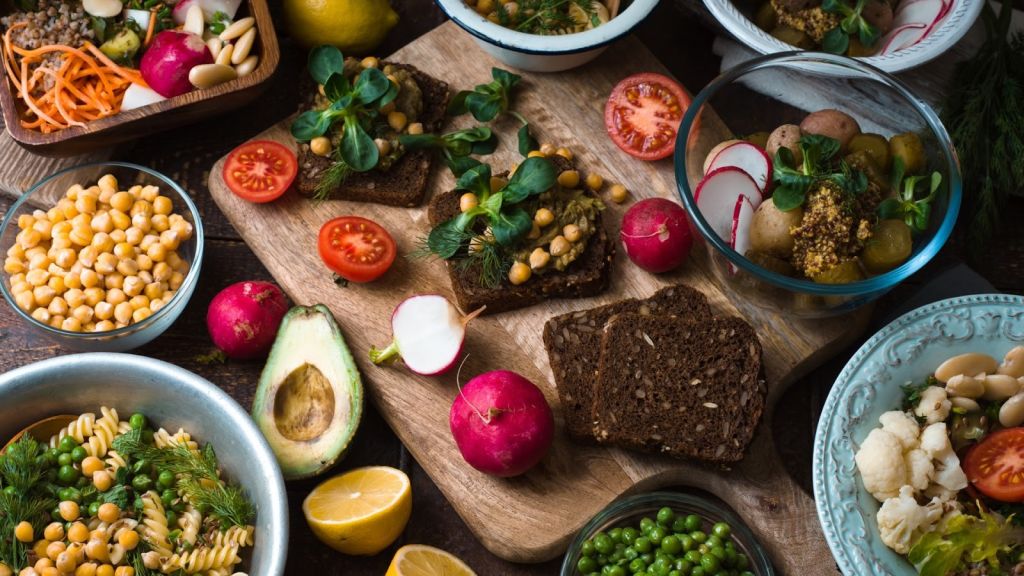Diving into the world of diets can feel like opening Pandora’s box—so many options, each claiming unique benefits. Among the most popular are the ketogenic (keto), paleolithic (paleo), and vegan diets. These diets have captured the attention of health-conscious individuals, athletes, and those seeking nutritional balance. Let’s unravel the principles behind these dietary choices and explore which might align best with your personal health goals.
Discovering the Keto Diet
The ketogenic diet flips traditional eating patterns on their head by emphasizing high-fat and low-carb intake. By drastically reducing carbohydrates, the body enters a state of ketosis, where fat becomes the primary energy source. This process can lead to significant weight loss and improved energy levels.
However, keto isn’t all butter and bacon. While many appreciate the initial rapid weight loss, it can be challenging to maintain the extreme carb restriction long-term. Potential side effects include nutrient deficiencies and a lack of fiber, which can affect digestive health. It’s crucial to monitor your body’s responses and consult a healthcare professional before making drastic changes.
Paleo Diet Uncovered
The paleo diet invites you to eat like our ancestors, focusing on whole foods that would have been available in the Paleolithic era. Lean meats, fish, fruits, seeds, and vegetables take center stage, while processed foods, grains, and dairy are left behind.
Advocates argue that this approach aligns better with human evolution, potentially reducing the risk of chronic diseases. However, critics point out sustainability concerns and the exclusion of certain nutritious food groups. Balancing modern agricultural practices with paleo principles can be tricky but rewarding for those committed to living a “back-to-basics” lifestyle.

Exploring the Vegan Diet
The vegan diet is a powerhouse of plant-based eating, eliminating all animal products. This lifestyle choice often extends beyond diet, reflecting ethical and environmental considerations. Veganism can offer numerous health benefits, such as improved heart health and reduced risk of certain cancers.
On the flip side, vegans must be mindful to obtain essential nutrients like vitamin B12, iron, and omega-3 fatty acids, which are typically found in animal products. With careful planning and supplementation, these challenges can be overcome, paving the way for a nutritious and sustainable way of living.
Comparing the Trio
While each diet has its advocates, they share some commonalities. All emphasize whole foods and discourage highly processed items, promoting overall health. Keto and paleo diets are protein-focused, whereas veganism relies heavily on plant-based proteins.
The differences lie in their approach to macronutrients and ethical considerations. Keto revolves around fat, paleo excludes modern processed foods, and veganism eliminates animal products entirely. Each diet appeals to different health and lifestyle needs, highlighting the individuality of nutritional choices.
Practical Tips for Diet Success
Considering a new diet requires thought and planning. Start by identifying your health goals and researching which diet best aligns with them. Meal planning is crucial, especially for complex diets like keto or veganism, to ensure nutritional adequacy.
Also, watch for potential nutrient deficiencies. Keto followers should ensure adequate fiber intake, while vegans need to monitor B12 levels. Consulting with a nutritionist can provide a tailored plan that maximizes the benefits and minimizes the risks of dietary change.
Wrapping Up Your Dietary Journey
Choosing the right diet is a deeply personal decision, shaped by health goals, lifestyle preferences, and ethical beliefs. Whether you’re drawn to the fat-burning state of keto, the ancestral appeal of paleo, or the plant-powered promise of veganism, each option offers unique paths to wellness.
Ultimately, the key lies in balance, sustainability, and informed choices. Engage with professionals, listen to your body, and remember that the best diet is one that supports your well-being and aligns with your values. Explore these options and discover the diet that’s right for you!






